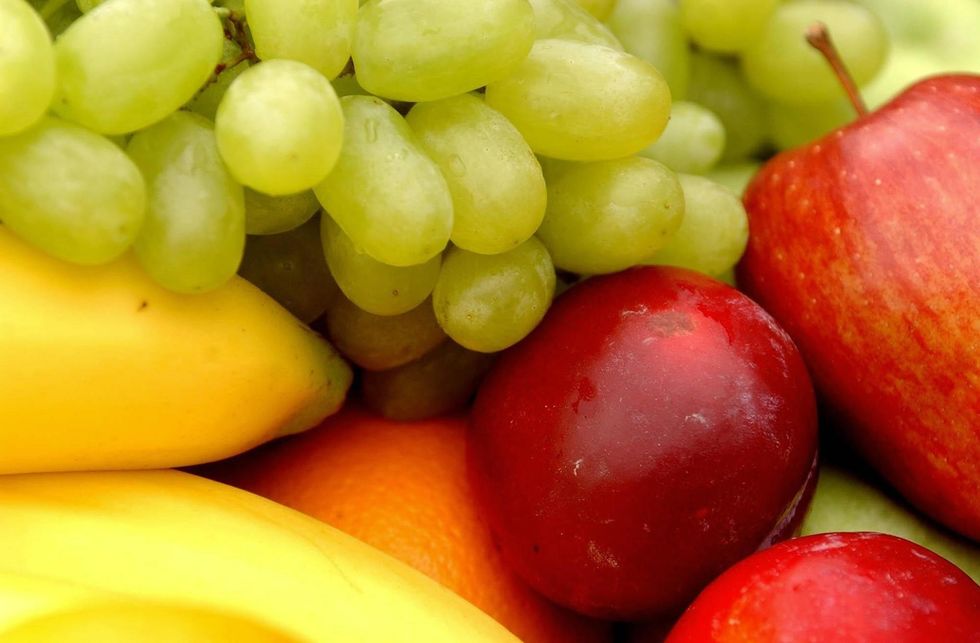‘I’m a doctor and following simple daily steps can add years to your life'
Living longer or longevity is not just a adding years to your life. To my mind it is also about health span too
Don't Miss
Most Read
This means you are adding health to your years and improving the quality of your time here on planet earth. Adopting a healthy and balanced lifestyle contributes to overall wellbeing and longevity.
Here are my top tips for longevity – a lot of what we now know about health span and longevity has been learnt from studying centenarians in Blue Zone countries (countries that have the highest concentration of centenarians) like Okinawa and Sardinia.
10 steps for longevity
Healthy diet
Consume a balanced diet rich in fruits, vegetables, whole grains, and lean proteins. Limit processed foods, sugar, and saturated fats.
Intrinsic movement
This is an exercise that happens intrinsically in the day for the reasons of having to get from A to B (so avoiding driving – walking more). Engage in physical activity regularly. Aim for a mix of aerobic exercises, strength training, and flexibility exercises.
Joyful movement
Moving your body because it makes you happy – the thought of it is joyful and not punitive or for the calorific ‘burn’. E.g. tai chi or open-water swimming.
Adequate sleep
Prioritise quality sleep. Most adults need seven to nine hours of sleep per night for optimal health.
Stress management
Practice stress-reducing techniques such as meditation, vagal nerve stimulation, deep breathing or yoga to promote mental well-being.

Sun protection is important for longevity
|PA
Social connections
Maintain strong social ties. Meaningful relationships and social interactions have been linked to a longer, healthier life. Social isolation has a higher mortality than smoking
Avoid smoking and excessive alcohol
Quit smoking and limit alcohol intake. These habits contribute to various health issues, alongside the more commonly known lung and liver disease.
Keep your brain engaged with activities like reading, puzzles, or learning new skills to maintain cognitive health.
Sun protection
Protect your skin from the sun to prevent skin damage and reduce the risk of skin cancer. Although I do encourage my women to get out into the sunlight every morning for six to eight minutes to get light on their skin to help with Vitamin D synthesis.
Maintain a healthy weight
Strive to maintain a weight that is appropriate for your age, height, and body type. Obesity is associated with many health issues which stem from an inflammatory process resulting in what we know as a metabolic syndrome. This leads to things like cancers, heart disease, diabetes, and Alzheimer's.
It is also important to attend regular check-ups to monitor and address any health concerns promptly.
Is there a best diet?
The best diet for longevity is one that emphasises whole, nutrient-dense foods and is associated with various health benefits. Remember, the key is to adopt a sustainable, balanced, and varied diet that supports overall health and longevity.
Consider the following principles:
Mediterranean diet
Known for promoting heart health, this diet includes fruits, vegetables, whole grains, nuts, seeds, and olive oil. It also features moderate amounts of fish and poultry, with limited red meat and dairy.
Plant-based diet
Focus on a plant-centric diet with a variety of fruits, vegetables, legumes, nuts, and whole grains. Plant-based diets have been linked to lower risks of chronic diseases.
Caloric moderation
Avoid overeating and practice portion control. Some studies suggest that caloric restriction without malnutrition may contribute to longevity.
Anti-inflammatory foods
Include foods with anti-inflammatory properties, such as fatty fish (rich in omega-3 fatty acids), berries, leafy greens, and turmeric.
Hydration
Stay adequately hydrated with water as your primary beverage. Limit sugary drinks and excessive caffeine.
LATEST DEVELOPMENTS

Eating a healthy diet can add years to your life
|PA
Moderate alcohol consumption
If you consume alcohol, do so in moderation. For example, the Mediterranean diet includes moderate wine consumption. Alcohol itself carries a heavy toxic burden on the organs that normally detoxify in your body like the liver. When you drink chronically (even small amounts daily) your liver will prioritise the breakdown of alcohol in preference to everything else, allowing other toxins to build up, e.g. oestrogen.
Limit processed foods
Minimise the intake of processed and sugary foods. Instead, opt for whole, minimally processed options. If you can’t name the first three ingredients on the food list, avoid!
Also oils like rape seed and vegetable oils tend to contribute to high oxidative load for your body – again avoid where possible. Many oat milks for example contain rape seed to allow for foaming when used in coffees so go with caution. Your oat latte may not be the healthiest choice.
Intermittent fasting
Some studies suggest that intermittent fasting may have health benefits, including potential effects on longevity. Consult with a healthcare professional before adopting fasting practices.
Social and cultural aspects
Eating with family and friends in a relaxed setting can contribute to overall well-being. It's not just about what you eat but also how, and with whom, you share meals. Stimulating your parasympathetic nervous system through your vagus nerve can really help with digesting and absorbing the best out of your meals.
Personalisation
Consider individual health needs and preferences. What works for one person may not be suitable for another. Consult with a healthcare provider for this sort of approach.
Dr Mayoni Gooneratne MBBS, BSc. MRCS, AFMCP











